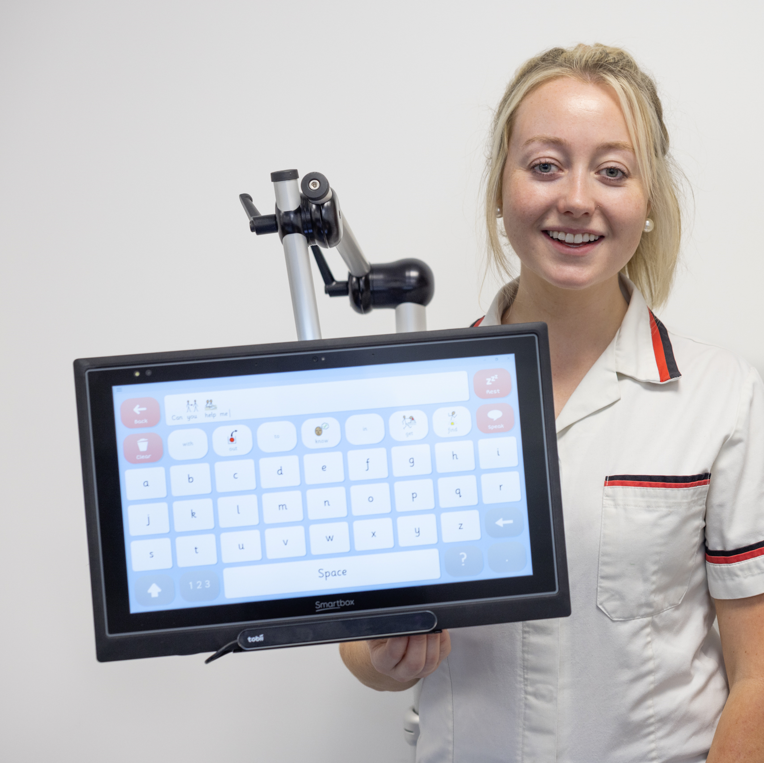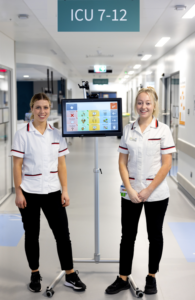Sarah Rowland
Clinical Specialist Speech & Language Therapist

Sarah Rowland
Sarah Rowland is a Clinical Specialist Speech & Language Therapist who works solely in the area of Critical Care. She has a strong interest in critical care swallow and communication, including the impact of intubation, ventilator weaning processes and tracheostomy management.
As part of her work in the Intensive Care Unit at Tallaght University Hospital (TUH), Sarah saw the need for a Grid 3 eye gaze communication device for patients and put together a detailed application to secure funding from the Trinity College Med Day, an annual fundraising event run by Medical students at TCD.
The Grid 3 is a really important piece of equipment for patients who have difficulty or cannot speak normally, for example, those who have an endotracheal or tracheostomy tube put in their throat by an ICU doctor or ENT surgeon to help them to breathe.
How it works – Patients can operate the Grid 3 software (which runs on a standard tablet screen) using switch technology, as well as touch or pointing devices. Switches are used by people with disabilities who cannot access a keyboard, touch screen, or any type of pointer control. They are suitable for people with physical, intellectual, or cognitive disabilities, as they provide an easy way to access and control electronic devices.

Sarah says the Grid 3, “Is hugely beneficial for patients who are ventilated and/or tracheotomised in that it can give them a voice. The device can be accessed via typing, different switch points (head, arm etc.), pointing or using eye-gaze tracking. Being able to communicate with medical staff really helps patients to engage in decisions around their care and rehabilitation, which is so important for their overall well-being. With the help of Ciara Fitzsimons, SLT and fellow AAC expert colleagues in the Central Remedial Clinical, we have trialled the Grid 3 assistive software with patients here in TUH and it has proven very beneficial.”
Grid 3 also enables patients to use speech synthesis text-to-speech apps. By using the tablet patients can also control their environment in ICU, for example, to turn on and off light switches and change the channel on the TV.
Research has discovered that loss of voice for hospital patients may have not just a substantial negative effect on their mood but also restricts their level of choice, leading to difficulty participating in their care planning and rehabilitation (Freeman-Sanderson, A., Morris, K., & Elkins, M. 2019). Patients have also reported that voicelessness is one of the most distressing aspects of their ICU experience and voice is valued more highly than other communication options (Newman et al., 2022; Mills, Cuthbertson & Michou et al., 2023).’
Caption * Sarah is pictured with her colleague Senior Speech & Language Therapist at TUH Claire Balaski